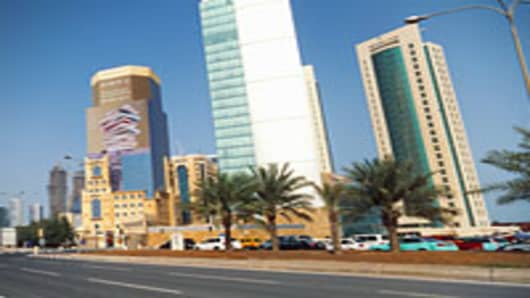A little bit over a year ago investors were scrambling to position themselves for what many believed was already overdue for the wealthy petrodollar economies of the United Arab Emirates and Qatar: an upgrade to the coveted Emerging Market status from Frontier Market by the global index compiler MSCI.
After all, it was the second review and some changes had been made. Yes, critical issues, such as foreign ownershiplimits in Qatar, were still going to be an impediment to an upgrade.
But most hopes were pinned to stated objectives by authorities and a reform train that was moving along, albeit slowly. And the potential benefits for domestic and foreign investors appeared glaringly obvious.
"I would suspect this will take some time to occur but certainly a movement in the right direction for the UAE markets and a net positive," Bruce Powers, Head of Reseach at Trust Securities in Dubai said of foreign ownership rules. "Some of the larger listings should benefit the most, like Emaar, Emirates NBD, Etistalat, Abu Dhabi National Energy and Abu Dhabi Commercial Bank," he said.
In a note last year, Credit Suisse stipulated there would be an equity fund flow of up to $1.74 billion into the UAE and Qatar, with the latter receiving about $1 billion. In its last evaluation in December 2011, the MSCI recommended the UAE allow securities borrowing and short-selling, while repeating previous calls for Qatar to lift its 25 percent cap on foreign ownership.
"Securities borrowing will help solve the consequences of failed trades and so may end up solving the main problem international investors have, which is that in certain conditions their holdings may be sold without their consent," Remy Briand, global head of index research at MSCI, told reporters at the time.
Indeed, earlier confidence has mostly dissipated. Haissam Arabi, CEO of Dubai-based Gulfmena Investments, saw little chance of an upgrade announcement on Wednesday.
"I don't think they will get it this year as little progress has been made vis-à-vis DVP [delivery versus pay] process, foreign ownership limits and shorting," he told CNBC.
Both countries have already implemented the global settlement standard, but the models were still being evaluated by participants. Officials, particularly in the UAE, have consistently maintained that conditions for an upgrade have been met.
"It's not a matter of controls. It's how bad do they want it. Progress is being made but at a slow pace and with no sense of urgency," Arabi added.
Against a weaker global economic backdrop, turnover this year has remained low and far from its peak in 2007. An upgrade, experts have told CNBC, would help stimulate market activity and foreign inflows. Most analysts agree that large-cap stocks would likely benefit the most from an MSCI upgrade.
Credit Suisse estimated that an MSCI upgrade would see Qatar account for 0.22 percent and the UAE for 0.13 percent of the total MSCI EM index. The two countries would not be the first in the region to be included in the index, following the accolades of Turkey, Egypt, and Morocco.
The MSCI will announce the verdict of its 2012 Annual Classification Review shortly after 11 p.m. CET.
Frontier Markets is a term used to characterize countries where market cap and liquidity levels are generally lower than its Emerging and Developed Market counterparts.
So far this year, the Dubai Financial Market is up 9 percent, while the Qatar Exchange has lost almost six percent. The UAE has two other bourses, including NASDAQ Dubai and the Abu Dhabi Securities Exchange.
Yousef Gamal El-Din is CNBC's Middle East Correspondent and contributes to the channel’s flagship shows, as well as analysis for CNBC.com.
Stay in touch with him on Twitter at http://www.twitter.com/youseftv @youseftv


